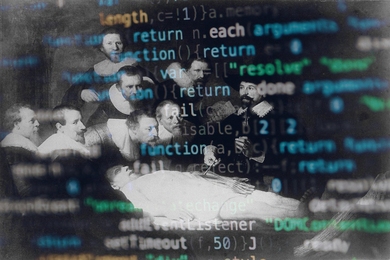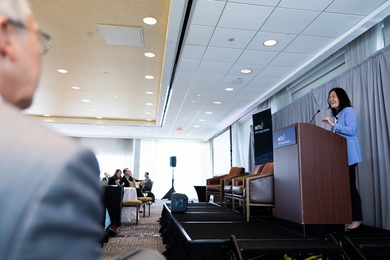Financial institutions have had a tumultuous two years, from the meltdowns involving Bear Stearns, Lehman Brothers and AIG to the scandal surrounding Société Générale, the French investment bank whose "rogue trader" Jérôme Kerviel lost billions of Euros and sent global markets plunging in January 2008. Vincent Lépinay, an assistant professor in MIT's Program on Science, Technology, and Society, has a unique perspective on these matters. As part of his graduate research, Lépinay worked at Société Générale over a period of two years. His first book, "Codes of Finance," to be published in 2010 by MIT Press, brings an anthropological eye to the subject while explaining how mathematicians and physicists have imported arcane financial instruments to the banking world. With governments around the world still debating how to regulate banks, Lépinay spoke with MIT News about the industry.
Q. You worked in the same unit at Société Générale that Jérôme Kerviel later joined. How could the bank's managers not discover and halt his trading activity?
A. People think banks have a strong hierarchy, but inside them, financial innovation is completely distributed. They know they make money by loosening the leash on traders. And you won't make money if you don't give enough space to traders to enter this quasi-legal gray area. With Kerviel, I don't know all the details. I don't know what the chief of the trading desk knew. But I would not be surprised if many traders were bending the rules. I thought it was clear that everybody assumed finance makes money by finding these uncharted areas where they can make new kinds of trades.
Q. Why couldn't government regulators figure out what was going on?
A. The French regulators would come into the office and ask the chiefs of the trading desks to tell them about their activities. They rely on the bankers to describe what's going on. One trader told me, "These guys are trying to understand what we do, but we spend 12 hours a day figuring out how we can make more money, and we do, and we get bonuses for it. The regulators leave at 5:00, and have fixed salaries." I got a similar account from many people. The discrepancy between the knowledge of the traders and the regulators is huge. It's an infantilizing situation for the regulators. Do you ask stupid questions and show that you don't know what is going on? This is a big problem. You need to reward the people who are setting the rules and looking for theft.
Q. There has been much discussion recently about how efficiently markets function. What do investment bankers think?
A. Market efficiency is a really good idea for economists. It simplifies models. But that's not how markets work. People don't process all the available information available before making a decision. Then once they buy a product, they can make mistakes for a long time. Another problem with the assumption of efficient markets involves financial innovation. There is a strong asymmetry between companies like Société Générale, who are designing these financial products, and some of their clients, who are not as sophisticated and may not grasp these products. But that's what drives innovation. You create new goods, people find them appealing for a few years, then they realize there are other services at cheaper prices. Bankers understand this.
Q. You worked in the same unit at Société Générale that Jérôme Kerviel later joined. How could the bank's managers not discover and halt his trading activity?
A. People think banks have a strong hierarchy, but inside them, financial innovation is completely distributed. They know they make money by loosening the leash on traders. And you won't make money if you don't give enough space to traders to enter this quasi-legal gray area. With Kerviel, I don't know all the details. I don't know what the chief of the trading desk knew. But I would not be surprised if many traders were bending the rules. I thought it was clear that everybody assumed finance makes money by finding these uncharted areas where they can make new kinds of trades.
Q. Why couldn't government regulators figure out what was going on?
A. The French regulators would come into the office and ask the chiefs of the trading desks to tell them about their activities. They rely on the bankers to describe what's going on. One trader told me, "These guys are trying to understand what we do, but we spend 12 hours a day figuring out how we can make more money, and we do, and we get bonuses for it. The regulators leave at 5:00, and have fixed salaries." I got a similar account from many people. The discrepancy between the knowledge of the traders and the regulators is huge. It's an infantilizing situation for the regulators. Do you ask stupid questions and show that you don't know what is going on? This is a big problem. You need to reward the people who are setting the rules and looking for theft.
Q. There has been much discussion recently about how efficiently markets function. What do investment bankers think?
A. Market efficiency is a really good idea for economists. It simplifies models. But that's not how markets work. People don't process all the available information available before making a decision. Then once they buy a product, they can make mistakes for a long time. Another problem with the assumption of efficient markets involves financial innovation. There is a strong asymmetry between companies like Société Générale, who are designing these financial products, and some of their clients, who are not as sophisticated and may not grasp these products. But that's what drives innovation. You create new goods, people find them appealing for a few years, then they realize there are other services at cheaper prices. Bankers understand this.





